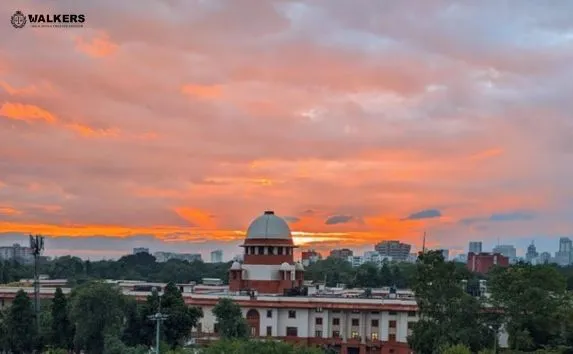


The Supreme Court has ruled that a marriage that has irretrievably broken down can be dissolved on the grounds of cruelty under Section 13(1)(ia) of the Hindu Marriage Act, 1955. In the case of Shri Rakesh Raman v. Smt Kavita, a Division Bench of Justices Sudhanshu Dhulia and JB Pardiwala held that when a marriage breaks down irretrievably, it spells cruelty to both parties, as each is treating the other with cruelty. The Court was hearing an appeal against a 2011 decision of the Delhi High Court, which had reversed a divorce decree granted by the family court in favor of the husband. The couple had been living separately for 25 years, and there had been multiple court battles during that time. The Supreme Court's decision overturns the High Court's ruling that the mere filing of cases against a spouse does not amount to cruelty.
The Supreme Court has observed that a couple's failed attempts to settle or compromise through mediation indicate an embittered relationship that has broken down irretrievably. In the case of Shri Rakesh Raman v. Smt Kavita, the Court noted that the parties had been living separately for 25 years and had engaged in multiple court battles. Despite the Supreme Court's recommendation in 2006 in the Naveen Kohli v. Neelu Kohli case that irretrievable breakdown of marriage should be a ground for dissolution of marriage, the law has not been amended accordingly. The Court also cited the Law Commission's 71st report, which stated that marriages that have irretrievably broken down are de facto broken down and require only de jure recognition by law. The judgment emphasized that the lack of a legal remedy for irretrievable breakdown of marriage has caused unnecessary litigation and delayed justice for parties seeking to end a failed marriage.
In the case of Shri Rakesh Raman v. Smt Kavita, the Supreme Court has ruled that a marriage that has irretrievably broken down can be dissolved on the grounds of cruelty. The Court held that the absence of cohabitation, long separation, bitterness between the parties, and complete breakdown of all meaningful bonds can be read as cruelty under Section 13(1)(ia) of the Hindu Marriage Act, 1955. The judgment stated that continuing such a marriage would only give sanction to the cruelty each party is inflicting on the other. The Court dissolved the marriage and ordered the husband to pay ₹30 lakh as permanent alimony to his estranged wife. The parties had been living separately for 25 years, and multiple court cases had been filed between them. The Court noted that no child was born out of the wedlock and the dissolution of the marriage would only affect the two parties involved. The appellant-husband was represented by Senior Advocate SK Rungta, and the wife was represented by Advocate SK Bhalla.
Click Here to: Download/View Related File
TAGS: Supreme Court irretrievable breakdown marriage cruelty dissolution Hindu Marriage Act Section 13(1)(ia) Delhi High Court embittered relationship multiple court battles mediation Naveen Kohli v. Neelu Kohli Law Commission permanent alimony estranged wife.